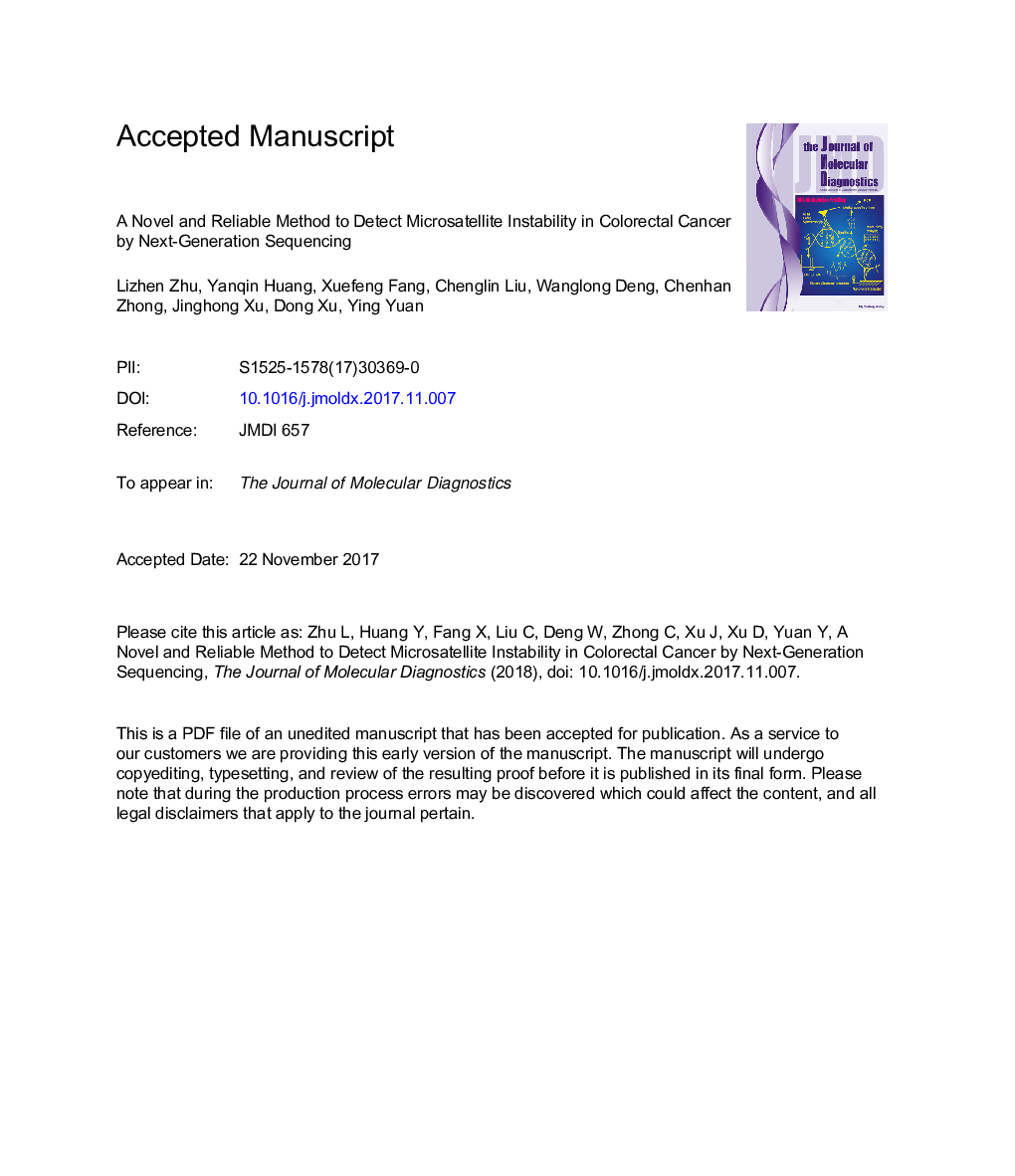| Article ID | Journal | Published Year | Pages | File Type |
|---|---|---|---|---|
| 8733387 | The Journal of Molecular Diagnostics | 2018 | 35 Pages |
Abstract
Two types of molecular tests have been established to assess the deficiency of the DNA mismatch repair (MMR) system: microsatellite instability (MSI) and immunohistochemical (IHC) analysis. We have developed a reliable method to analyze the MSI status by next-generation sequencing (NGS) based on read-count distribution. A total of 91 patients with primary colorectal cancer were recruited. These patients included 54 cases with loss of expression of any MMR protein in IHC, suggesting deficient MMR (dMMR), and 37 cases of colorectal cancer with staining of all four MMR proteins in IHC, suggesting proficient MMR in the sample after surgery. DNA was extracted from paired tumor-normal tissue for MSI detection by both the ColonCore NGS panel and PCR. The sequencing data from the NGS panel was processed using various MSI detection pipelines for a comparison with the ColonCore panel. Using the MSI-PCR test as the gold standard, MSI-ColonCore achieved 97.9% sensitivity (47 of 48) and 100% specificity (37 of 37) for the detection of MSI status. MSI-ColonCore also showed more efficient and robust performance compared with other NGS-based MSI detection algorithms. The concordance rate was 92.3% between MSI-ColonCore and IHC testing, and 93.4% between MSI-PCR and IHC testing. These results suggest that MSI-ColonCore is a reliable and robust method for MSI status detection by NGS based on read-count distribution.
Related Topics
Health Sciences
Medicine and Dentistry
Health Informatics
Authors
Lizhen Zhu, Yanqin Huang, Xuefeng Fang, Chenglin Liu, Wanglong Deng, Chenhan Zhong, Jinghong Xu, Dong Xu, Ying Yuan,
